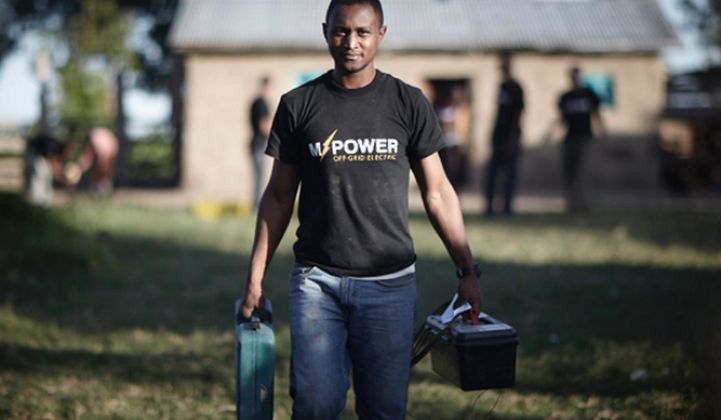Early-stage investments in off-grid solar companies operating in developing countries reached $63.9 million in 2014, according to a tally from Greentech Media.
The diverse range of investments came from venture capitalists, impact investors, commercial banks and other large energy companies looking to expand into new emerging markets.
The numbers were boosted by two large deals: $20 million in debt and grants to Kenya's M-KOPA Solar, and $23 million in venture funding closed by Tanzania-based Off-Grid Electric.
M-KOPA and Off-Grid Electric are representative of the new wave of solar companies attracting capital. Both companies use mobile payment platforms that give customers the ability to pay for electricity as they need it, rather than investing in an entire solar system.
It's not just the falling cost of solar helping them expand operations. The pay-as-you-go model is enabled by the ubiquity of mobile phones, the growth in mobile payment methods like M-Pesa, the rising cost of kerosene and the falling cost of LED lights.
Off-Grid Electric got the most attention for its two venture rounds closed this year. In March, the company pulled in $7 million from Vulcan Capital, Omidyar Ventures and leading U.S. residential solar installer SolarCity. SolarCity's CEO Lyndon Rive then joined Off-Grid Electric's board.
This week, Off-Grid Electric announced that SolarCity, Vulcan Capital and Zouk Capital had invested another $16 million in the company to help it expand solar lighting offerings in Tanzania. The move could help SolarCity bring its solar services model beyond America's borders.
When the Series A closed in March, Rive hinted at the opportunity of using Off-Grid Electric as a vehicle for deploying more systems tying solar and storage together.
“Many emerging economies skipped the build-out of phone lines to go straight to cell phones, and the combination of solar and storage can obviate the need for more power lines," he said.
A few weeks prior, the power engineering giant Schneider Electric participated in a $2.5 million Series A round supporting the solar finance startup SunFunder.
SunFunder raises debt from unaccredited, accredited and institutional investors investors online to support "high-impact" solar projects in India and various African countries. It uses revenues from the projects to pay back the loans. SunFunder claims it has a zero percent default rate.
With help from Schneider Electric, Khosla Impact and Better Ventures, SunFunder hopes to expand its lending platform to deploy $100 million in projects by 2017. It has only supported $1.3 million in projects so far.
Other notable investments in 2014 included d.light's $11 million Series C round, SolarNow's $2.4 million equity round and Little Sun's $5 million impact investment from Bloomberg Philanthropies.
Advocates of off-grid solar are hoping that new investors can fill in where traditional multilateral development banks (MDBs) have been slow to act. In an October report, the Sierra Club gave the four major MDBs -- the African Development Bank, the Asian Development Bank, the Inter-American Development Bank and the World Bank -- failing grades for their policies pertaining to helping entrepreneurs expand distributed energy access.
The grading criteria was partly based on guidelines from the International Energy Agency, which suggests that two-thirds of funding for energy access should be devoted to distributed technologies.



